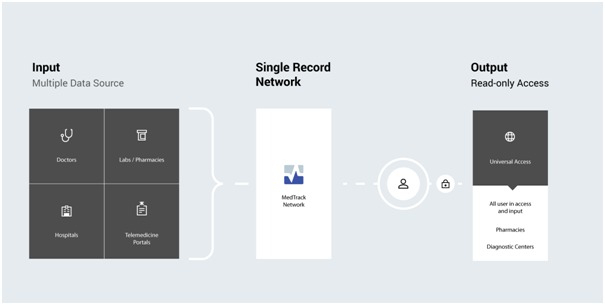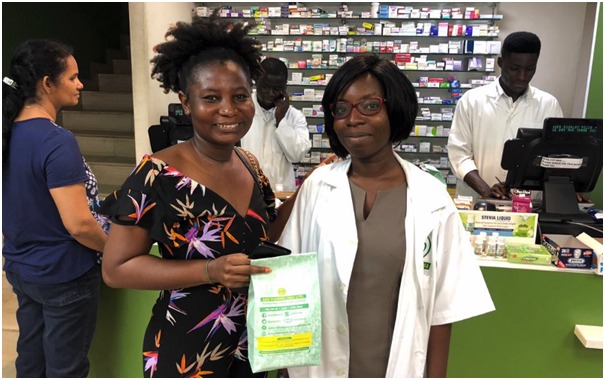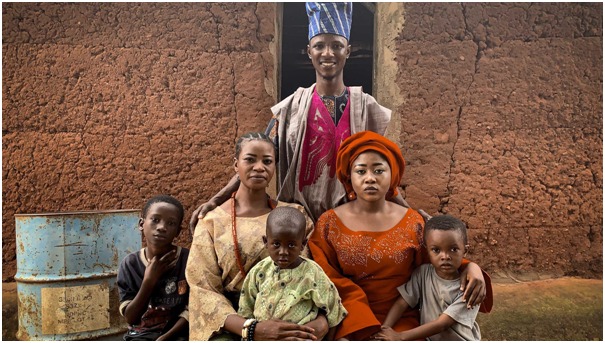Introduction
If the recent Ebola and Covid-19 pandemics have taught us anything at all, it is that technology can help Africa prepare better and transform how health care is delivered. Easier access to health information data is instrumental in the delivery of better outcomes by health care professionals and in development planning by policymakers.
Background
In 2019, the WHO introduced the “triple billion” targets for global health, i.e. universal healthcare, health emergency protections, and overall better health outcomes for one billion people across the world.
Technology can help achieve these goals by increasing access, improving quality and reducing costs.
Planning and designing of a holistic health care system are imperative to avoid the current phenomenon of health data silos which greatly affects the access, cost and delivery of quality health.
The prospects of Artificial Intelligence (AI) in African healthcare delivery will be a facade if we are not able to provide quality and a significant amount of data for training AI models.
The fragmented data currently available is a huge bottleneck for researchers and developers in building AI technologies especially in health-tech where the stakes are much higher.
There is a dire need for both governments and the private sector to work towards a health data standardization in Africa.
The European Union (EU), for instance, passed the comprehensive data protection law, General Data Protection Regulation (GDPR), in 2018.
The GDPR explicitly defines data that is particularly important to the healthcare industry with regulations on how it should be processed.
The Health Insurance Portability and Accountability Act (HIPAA) in the US provides the national standard on how health information is collected, processed and managed.
Most African countries are still in their infancy with regards to these types of health data policies or regulations. In Ghana, the Data Protection Act 2012 (DPA) covers general data compliance issues. It does not have specific guidelines for the collection and management of health data.
Given these fewer policy barriers with increasing mobile penetration, there is a huge opportunity for designing and implementing an even more robust and economically viable national health information systems.
The Ghanaian Healthcare ecosystem
The Ghana Health Service (GHS) Fact + Figures(2018) reports that there are over 2,500 government hospitals and clinics across the country. Private facilities account for as much as half (43%) of all hospital beds.
These facilities are aided by numerous community pharmacies and diagnostic centres(private laboratories and imaging centres)
Patient record folders have been regarded as the property of the hospitals even though the data belongs to the patient.
This has been the general policy of health facilities to safely manage patient records. Transfer of patient information is done through reports and referrals and while this is a good policy, it has limited implementation as the receiving physician might require some information not documented on the note and hence fall back on patients’ powers of recall, and this is greatly unreliable.
Government hospitals such as The 37 Military Hospital, The Greater Accra Regional Hospital and the Korle Bu Teaching Hospital have made great strides in digitizing their health records, thousands of other public health facilities are still struggling to even manage their paper folders due to economic, infrastructural requirements and other institutional barriers.
Private facilities have been on a similar trajectory with a few of them having electronic health records.
These digital record systems, however, like their physical folder counterparts, remain embedded within the facilities in which they operate. The patient data is not transferable and therefore can not be accessed by other facilities, creating an even more fragmented health data ecosystem.
The MediaTrack solution
MedTrack is a homegrown health-tech solution that provides a unified health record system for patients and healthcare providers in Ghana. This cloud-based solution simply allows doctors irrespective of their location to properly record patient information and connects to other providers such as community pharmacies and diagnostic centres. The patient is engaged through web and SMS channels.

A universal record system that allows access to patient information at every potential venue of care while still providing security and autonomy of patient information throughout the nation represents a huge step forward in health care reform. The adoption of universal structures, however, thrives on trust, ubiquity and value to the general population.
MedTrack achieves this by connecting every citizen’s electronic health record to a single national system; the Ghana Card.
The Ghana Card is currently the single most accessible and acceptable form of identification in Ghana.
The card is especially strategic because it is poised to consolidate all other forms of identification such as the National Health Insurances Card, Social Security Numbers, Drivers License and even as a biometric travel document within the West African sub-region. It is widely available for free and issued to every citizen irrespective of their age, location or social status.

By connecting citizens, data and systems, MedTrack creates a network that allows health data to flow seamlessly across care providers, locations and systems.
The value MedTrack delivers lies in its adaptive design that takes cognisance of the dynamics in the local healthcare system; healthcare accessibility, interrelations between primary healthcare facilities and ancillary services, baseline technologies, emerging healthcare trends and various ethnographic influences.
MedTrack provides a secured internet-based system that any institution, regardless of its current technology infrastructure can access, manage and collaborate on patient information.
It delivers a standard Electronic Health Records (EHR) structure online that allows for participation by all institutions even at a rudimentary level.
Technological considerations
The main goal of developing a universal record system is secured accessed, not by caregivers alone but by patients as well.
Although each patient’s medical record is managed by physicians, patient information needs to be portable and accessible to appropriate caregivers in other health care settings, while ensuring privacy and security to patients.
Thus, an internet-based, password-protected records system is most likely the best option.
But, how do we empower patients to take charge and engage in the management of their digital records? Integrate baseline technologies. Medtrack adopts the same technologies that stimulated the scale and success of Mobile Money in Africa: SMS and USSD integrations.
These two channels provide critical functionalities including password authentication for access and various SMS notifications on the most basic mobile phone device.
Emerging Trends
The Ghanaian industry has been experiencing an emergence of new patient interactions such as; walk-ins into pharmacies and diagnostic centres for primary health care rather than the clinics or hospitals.
This is a vital part of our health ecosystem, this interaction is however not documented and the information is not transferred to other facilities except through patient recall.
The incorporation of community pharmacies and diagnostic centres within the MedTrack network does not only facilitate patient safety in terms of documentation and referral for on-going treatment, but it also enables real-time communication between doctors and pharmacists/diagnostic centres.

There are also new trends in care delivery such as concierge and homecare. Physicians practising privately or providing homecare services will typically save the information of their numerous patients in paper diaries or other digital notes alternatives on their mobile phones.
It is not uncommon for doctors to save their private patient names along with their primary conditions in their phone contacts e.g. “Kofi Asthma”. MedTrack is positioned to become the goto universal patient management tool for private doctors via their mobile devices.
Medtrack allows physicians to access their concierge clients information in real-time while also giving direct access to communicate with allied institutions in health care, thus community pharmacies and diagnostic centres( laboratories and imaging centres).
Patient information is kept documented, safe and can be transferred to the next level health care centre with explicit permission from the patient.
With telemedicine solutions gradually becoming a staple within the healthcare delivery chain in the COVID-19 era, MedTrack is making available developer APIs that can easily be integrated into these solutions to securely connect to the patient information. Physicians on different telemedicine platforms are therefore able to collaborate and provide on-going care using common patient data.
Conclusion
The health ecosystem is making strides at digitization, this, however, is fragmented with herein challenges of integration. The solutions currently only tackle the problems of documentation of patient information.
Medtrack, through the use of the Ghana card, seeks to be a universal solution to the documentation of both formal and informal health sector interactions and to allows for access to this information at all secondary levels.
The solution is available to patients and healthcare facilities across Ghana, and targeted to onboard over 10% (300,000) of the population by the first quarter of 2021
To read more, visit medtrack.io or sign up as a patient. Caregivers and service providers can also request for a free set-up.
Latest Stories
-
When lawmakers themselves appear unwilling to abide by the laws they legislate
2 hours -
Mahama promises 200,000-hectare cocoa expansion to revitalise industry
3 hours -
Communications Minister unveils gov’t’s digital inclusion plan for PWDs
3 hours -
Youth group accuses judiciary of undermining anti-corruption efforts
3 hours -
Parliament recommends ratification of WTO agreement on fisheries subsidies
3 hours -
Ghana to roll out Labour Export Initiative – Mahama announces
3 hours -
Two killed in fatal accident on Bole–Damongo Road
3 hours -
Joseph Ade Coker, former NDC Greater Accra Regional Chairman dies
3 hours -
From Bulldozing to Bail-Begging: Wontumi’s Plot Twist No One Saw Coming
3 hours -
Mahama promises new modern regional hospital for Ahafo Region
4 hours -
Appiagyei-Atua: Protest by Minority over Wontumi’s arrest unnecessary and theatrical
4 hours -
Parliament approves GH¢10bn for NHIA
4 hours -
Martin Kpebu alleges some NPP bigwigs exploiting Wontumi’s arrest for political gain
4 hours -
Mahama orders swift completion of Maaban-Goaso Highway as he vows not to abandon projects started by previous government
4 hours -
Mahama rallies citizens for unity, determination, discipline for nation-building
4 hours

